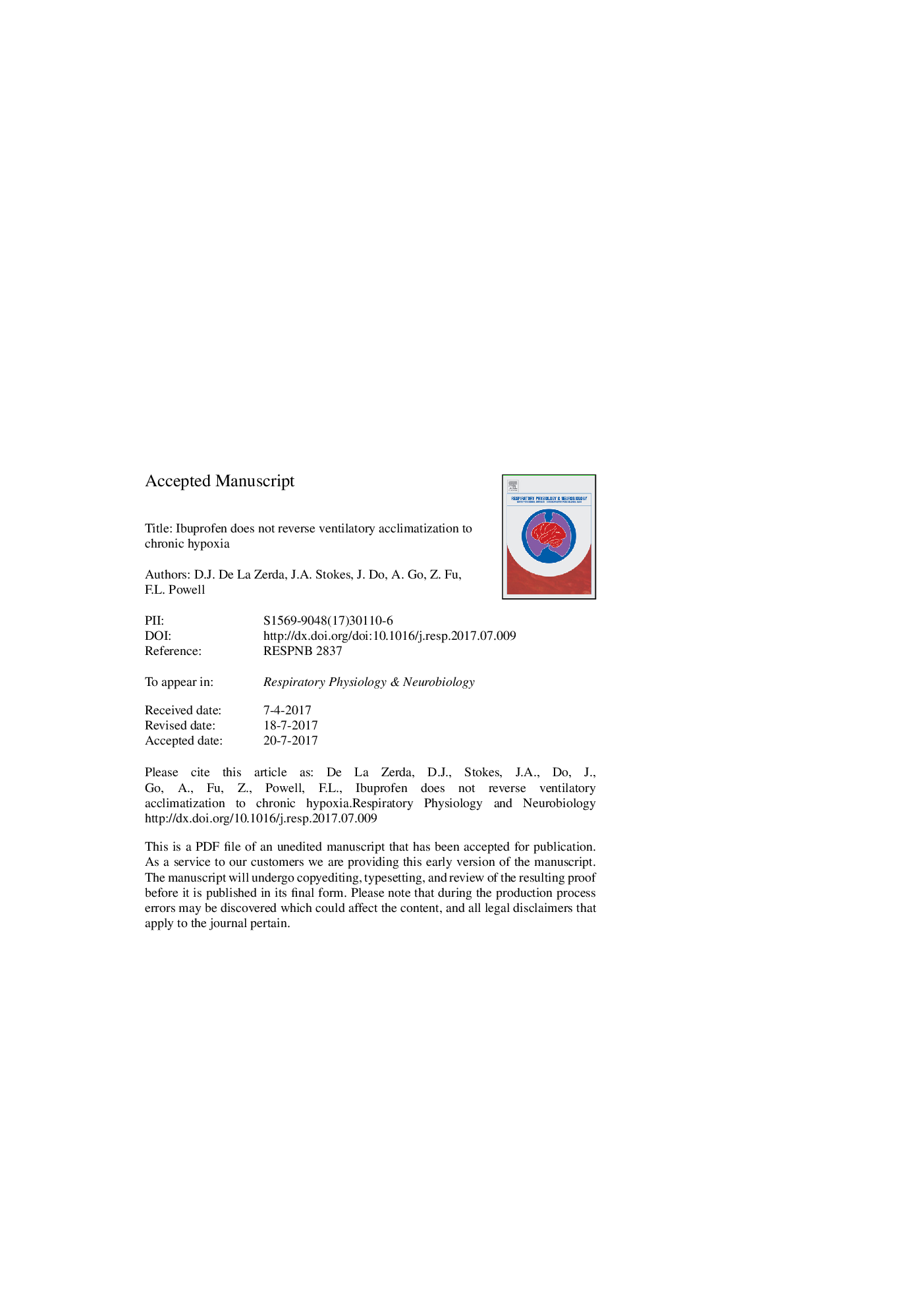| Article ID | Journal | Published Year | Pages | File Type |
|---|---|---|---|---|
| 8951019 | Respiratory Physiology & Neurobiology | 2018 | 30 Pages |
Abstract
Ventilatory acclimatization to hypoxia involves an increase in the acute hypoxic ventilatory response that is blocked by non-steroidal anti-inflammatory drugs administered during sustained hypoxia. We tested the hypothesis that inflammatory signals are necessary to sustain ventilatory acclimatization to hypoxia once it is established. Adult, rats were acclimatized to normoxia or chronic hypoxia (CH, PiO2Â =Â 70Â Torr) for 11-12Â days and treated with ibuprofen or saline for the last 2Â days of hypoxia. Ventilation, metabolic rate, and arterial blood gas responses to O2 and CO2 were not affected by ibuprofen after acclimatization had been established. Immunohistochemistry and image analysis showed acute (1Â h) hypoxia activated microglia in a medullary respiratory center (nucleus tractus solitarius, NTS) and this was blocked by ibuprofen administered from the beginning of hypoxic exposure. Microglia returned to the control state after 7Â days of CH and were not affected by ibuprofen administered for 2 more days of CH. In contrast, NTS astrocytes were activated by CH but not acute hypoxia and activation was not reversed by administering ibuprofen for the last 2Â days of CH. Hence, ibuprofen cannot reverse ventilatory acclimatization or astrocyte activation after they have been established by sustained hypoxia. The results are consistent with a model for microglia activation or other ibuprofen-sensitive processes being necessary for the induction but not maintenance of ventilatory acclimatization to hypoxia.
Keywords
Related Topics
Life Sciences
Biochemistry, Genetics and Molecular Biology
Physiology
Authors
D.J. De La Zerda, J.A. Stokes, J. Do, A. Go, Z. Fu, F.L. Powell,
